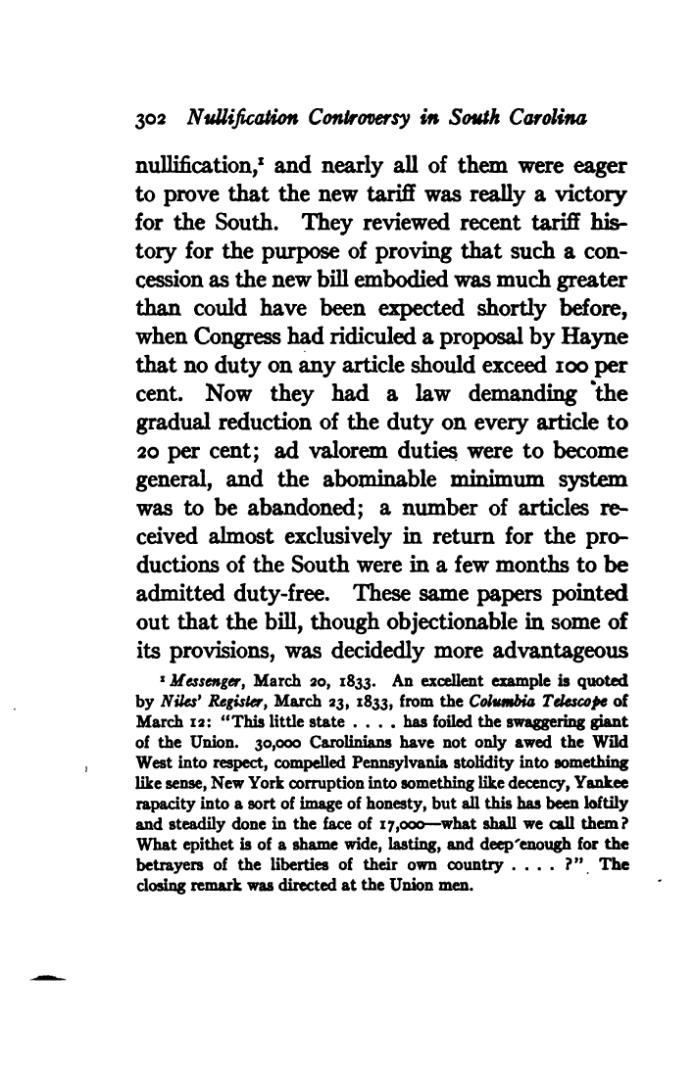nullification,[1] and nearly all of them were eager to prove that the new tariff was really a victory for the South. They reviewed recent tariff history for the purpose of proving that such a concession as the new bill embodied was much greater than could have been expected shortly before, when Congress had ridiculed a proposal by Hayne that no duty on any article should exceed 100 per cent. Now they had a law demanding the gradual reduction of the duty on every article to 20 per cent; ad valorem duties were to become general, and the abominable minimum system was to be abandoned; a number of articles received almost exclusively in return for the productions of the South were in a few months to be admitted duty-free. These same papers pointed out that the bill, though objectionable in some of its provisions, was decidedly more advantageous
- ↑ Messenger, March 20, 1833. An excellent example is quoted by Niles' Register, March 23, 1833, from the Columbia Telescope of March 12: "This little state....has foiled the swaggering giant of the Union. 30,000 Carolinians have not only awed the Wild West into respect, compelled Pennsylvania stolidity into something like sense. New York corruption into something like decency, Yankee rapacity into a sort of image of honesty, but all this has been loftily and steadily done in the face of 17,000—what shall we call them? What epithet is of a shame wide, lasting, and deep enough for the betrayers of the liberties of their own country....?" The closing remark was directed at the Union men.
